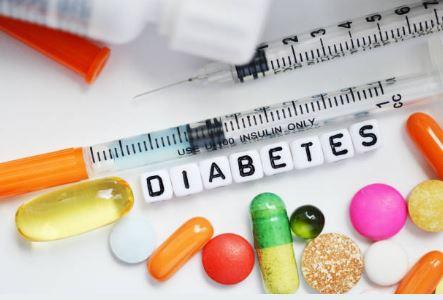
It’s National Diabetes Awareness Month and this year we’re focusing on the link between Diabetes and Cardiovascular disease. Diabetes is a serious health condition that affects the production of insulin in your body. Insulin is a hormone that is supposed to help your body digest sugars that come from what you eat and drink. If your body fails to produce enough insulin this may lead to sugar build up in your blood, which may also cause damage to nerves, blood vessels, the heart and kidneys.
Diabetes is a chronic health condition that affects more than 30 million people in the United States. As the disease can often feel like a life sentence of daily management, it is extra important to be educated this National Diabetes Awareness Month by understanding diabetes and its types so that you can help prevent Diabetes, especially if you are pre-disposed to it.
What are the different types of Diabetes?
The 3 main types of diabetes are type 1, type 2 and gestational diabetes. Lifestyle choices can be one of the factors that can cause diabetes. However, each type can also develop because of genetics or a family history of diabetes.
Type 1 Diabetes is caused by an immune reaction where the body attacks itself by mistake. It’s less common than type 2, however this type of diabetes can stop your body from making insulin. Insulin is supposed to enable blood sugar to enter the cells in your body to be used for energy. Without insulin, blood sugar can’t get into the cells and builds up in the blood. High levels of blood sugar often leads to other health complications with the heart, kidneys and central nervous system. This type of diabetes is usually diagnosed in children, teens and young adults. If you are diagnosed with this type you’ll need to take insulin everyday to survive as high blood sugar may cause complications to other vital organs
Type 2 Diabetes is the most common form of diabetes that affects millions of people in the United States. It’s usually diagnosed in adults, but can develop at any age. Normally, bad lifestyle habits and behaviors like smoking, not getting enough exercise and poor diet can lead to diabetes type 2. Someone with type 2 diabetes has trouble with insulin regulation. As the body does not respond normally to insulin the body will produce more of it, which can often lead to higher levels of blood sugar. Once diagnosed with type 2, many individuals struggle with daily management and other health related complications.
Diabetes during pregnancy or “gestational diabetes” can be one of the more serious types as it can affect both you and your newborn. During pregnancy, a woman’s body produces more hormones and goes through other changes, such as weight gain. According to the CDC all women have some insulin resistance during late pregnancy, which makes them more susceptible to developing gestational diabetes and even type 2 diabetes after pregnancy.
What are the warning signs of Diabetes?
There are many people who are diagnosed with diabetes that wish they would have reacted sooner to the warning signs. Prediabetes is an actual thing and there are millions of people in the United States that have it, but have the opportunity to prevent getting the more common type 2 diabetes. If you notice any of these symptoms and risks, it’s imperative that you go to the doctor to get tested. These symptoms and risks include one or more of the following:
Risks for diabetes
- Being overweight (Childhood obesity)
- Family history of diabetes
- Not physically active
- Have high blood pressure or take medicine for high blood pressure
- Have low HDL cholesterol and/or high triglycerides
- Had diabetes during pregnancy
- Have been diagnosed with Polycystic Ovary Syndrome
Symptoms of early onset diabetes
- Increased thirst and urination
- Fatigue
- Blurred vision
- Unexpected weight loss
- Increased hunger
- Slow-healing sores and frequent infections
- Red, swollen gums
- Tingling or numbness in your hands or feet
If you are experiencing any of these symptoms or warning signs then it’s time to pay a visit to your general doctor. A medical professional can provide better insight on ways to manage these symptoms and prevent full blown diabetes.
Diabetes prevention is possible
Diabetes often leads to other serious health problems like heart disease, stroke, kidney disease, nerve damage and more. If you manage your symptoms or diabetes now you have a better chance at reducing your risk for other health complications down the road.
An A1C test can help you determine where your blood sugar levels are at. From there you can speak with your doctor about prevention. A lifestyle change may be required to get your blood sugar levels in check.This can include dietary changes, more exercise and more blood monitoring. If you already have the disease know that there is still management tools to help you stay on track mentally and physically.
AFC Urgent Care West Hartford can help check your blood sugar levels
At AFC Urgent Care West Hartford we can perform blood work in order to determine your blood sugar levels. Based on your levels and risk of developing diabetes we’ll help point you in the right direction that is specific to your lifestyle needs. Come on in to AFC Urgent Care West Hartford at 1030 Boulevard, West Hartford, We are open 7 days a week, 8am-8pm Monday-Friday and also 8am-5pm on the weekends. We accept most insurances!


